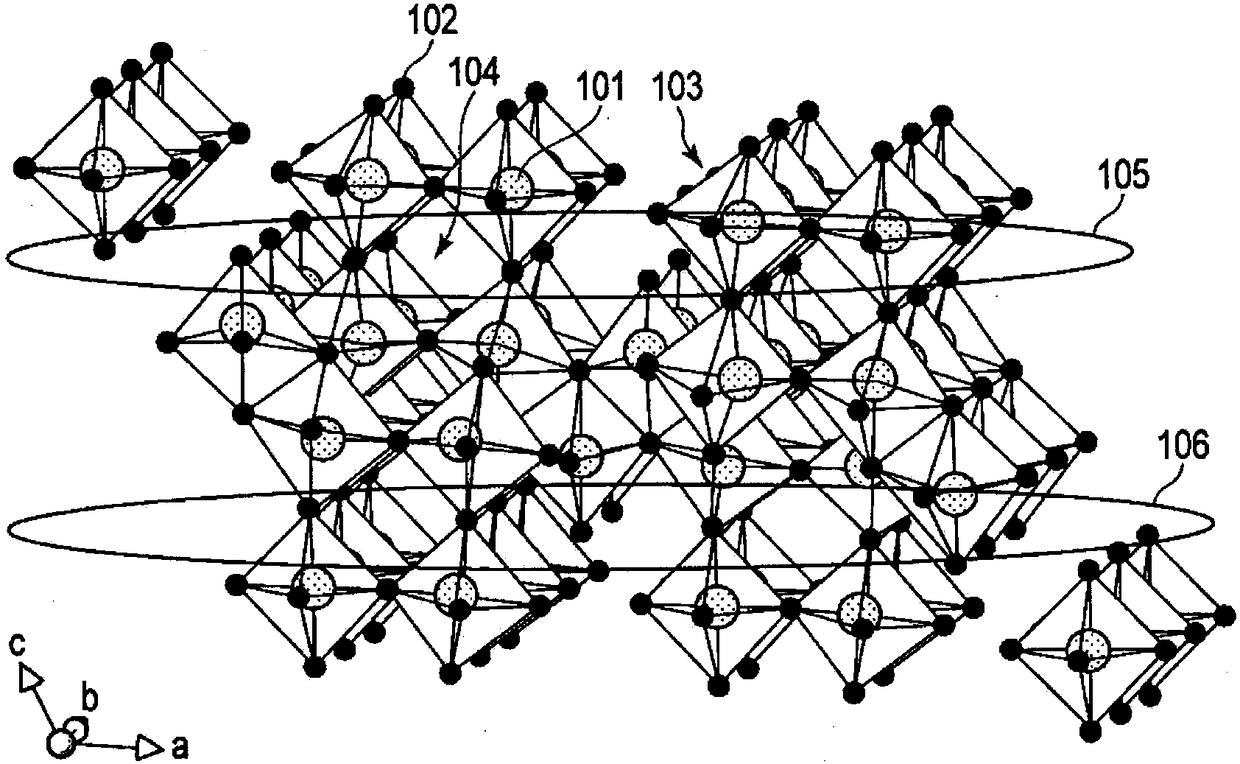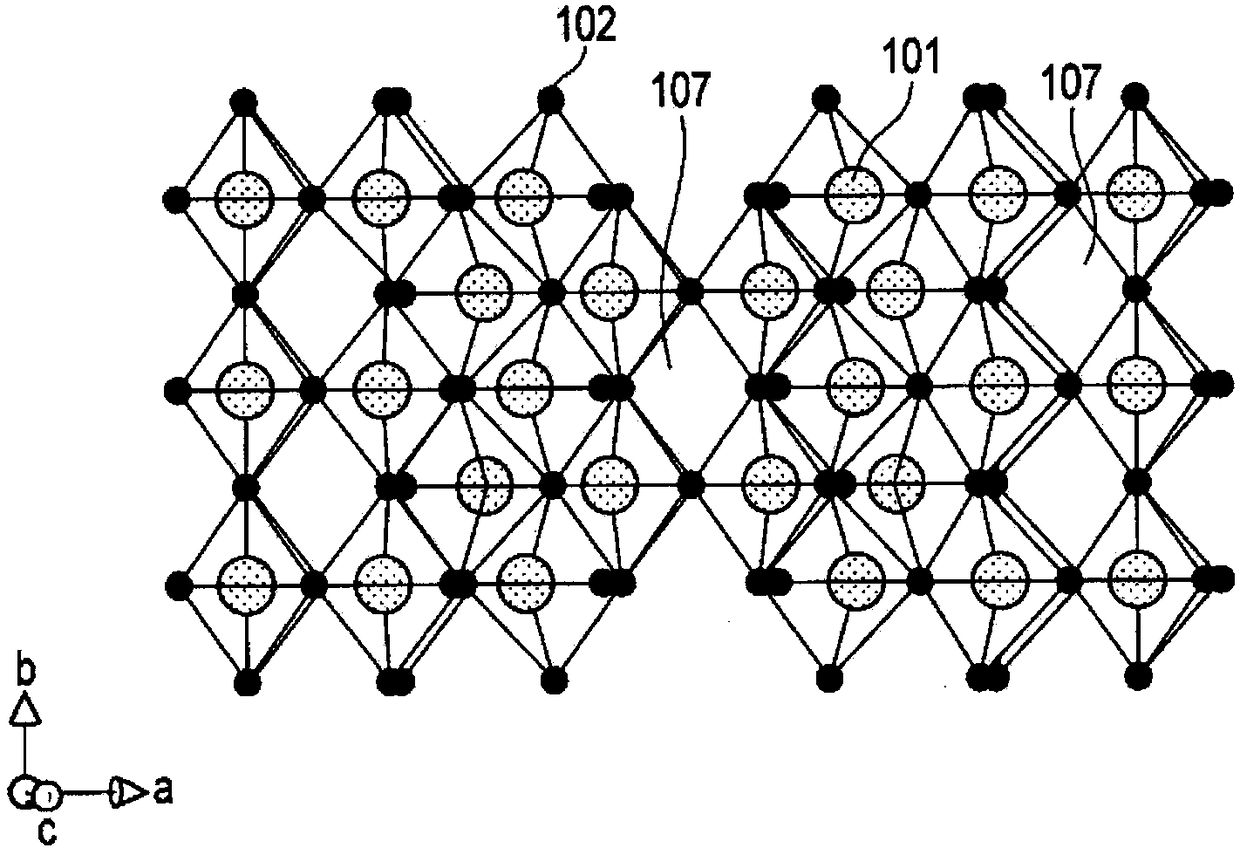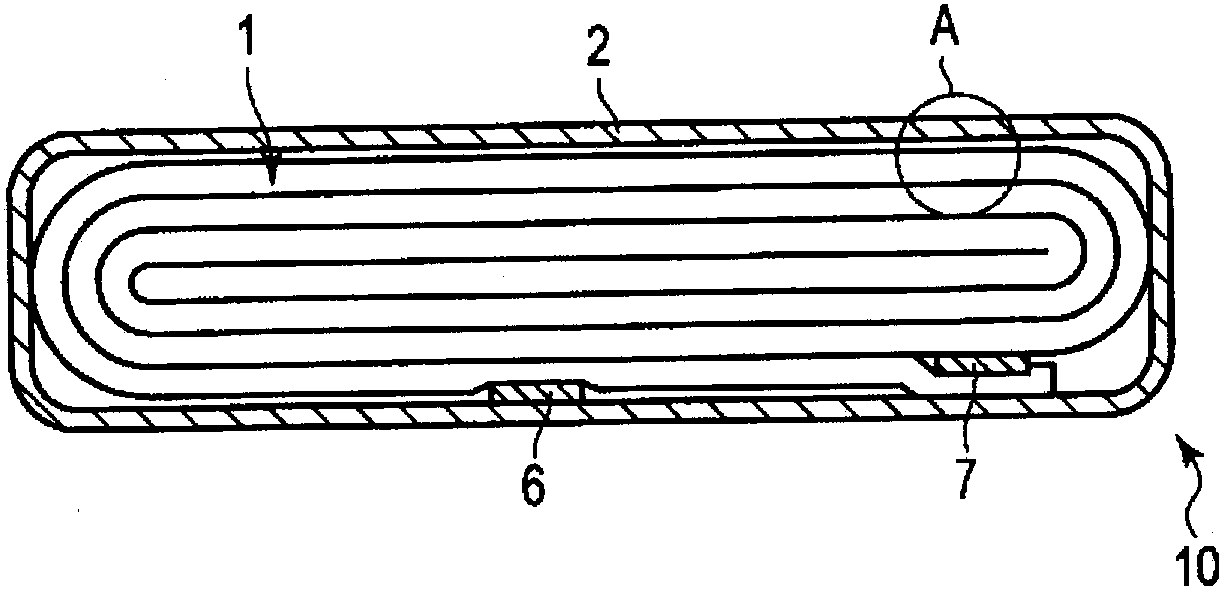Active material for battery, non-aqueous electrolyte battery and battery pack
A non-aqueous electrolyte and active material technology, applied in non-aqueous electrolyte batteries, active material electrodes, battery electrodes, etc., can solve the problems of less equivalent sites and capacity reduction.
- Summary
- Abstract
- Description
- Claims
- Application Information
AI Technical Summary
Problems solved by technology
Method used
Image
Examples
no. 1 Embodiment approach
[0031] According to the first embodiment, an active material for a battery is provided. The battery active material contains a composite oxide represented by the general formula: Li x (Nb 1-y Ta y ) 2+0.5z Ti 1-z m 0.5z o 7 (0≤x≤5, 0≤y≤1, 0<z≤1). In the formula, M is at least one metal element selected from the group consisting of Sc, Y, V, Cr, Fe, Co, Mn, Al and Ga.
[0032] Formula Li x (Nb 1-y Ta y ) 2+0.5z Ti 1-z m 0.5z o 7 The indicated composite oxide may have a monoclinic crystal structure.
[0033] As the general formula Li x (Nb 1-y Ta y ) 2+0.5z Ti 1-z m 0.5z o 7 An example of the composite oxide represented by (0≤x≤5, 0≤y≤1, 02 (Nb 0.05 Ti 0.9 Fe 0.05 )O 7 A schematic diagram of the crystal structure is shown in figure 1 and 2 middle.
[0034] Such as figure 1 As shown, in the monoclinic composite oxide Nb 2 (Nb 0.05 Ti 0.9 Fe 0.05 )O 7 In the crystal structure of , metal ions 101 and oxide ions 102 constitute a skeleton structure p...
no. 2 Embodiment approach
[0089] According to the second embodiment, a non-aqueous electrolyte battery including the active material for a battery of the first embodiment can be provided. The nonaqueous electrolyte battery includes a negative electrode, a positive electrode, and a nonaqueous electrolyte. The battery active material according to the first embodiment can be used for a negative electrode, a positive electrode, or both of the negative electrode and the positive electrode.
[0090] The non-aqueous electrolyte battery of the second embodiment may further include a separator disposed between the positive electrode and the negative electrode. The positive electrode, the negative electrode, and the separator can constitute an electrode group. A non-aqueous electrolyte may be held in the electrode group.
[0091] In addition, the non-aqueous electrolyte battery of the second embodiment may further include an exterior member for accommodating the electrode group and the non-aqueous electrolyte....
no. 3 Embodiment approach
[0151] According to a third embodiment, a battery pack is provided. This battery pack includes the nonaqueous electrolyte battery of the second embodiment.
[0152] The battery pack of the third embodiment may include a plurality of non-aqueous electrolyte batteries. A plurality of nonaqueous electrolyte batteries may be electrically connected in series, or may be electrically connected in parallel. Alternatively, a plurality of non-aqueous electrolyte batteries may be connected in series and in parallel in combination.
[0153] Below, refer to Figure 7 and Figure 8 An example of the battery pack of the third embodiment will be described.
[0154] Figure 7 It is an exploded perspective view of a battery pack as an example of the third embodiment. Figure 8 yes means Figure 7 A block diagram of the battery pack circuit.
[0155] Figure 7 and Figure 8 The illustrated battery pack 20 includes a plurality of single cells 21 . single cell 21 for reference image 3...
PUM
| Property | Measurement | Unit |
|---|---|---|
| thickness | aaaaa | aaaaa |
| thickness | aaaaa | aaaaa |
| particle diameter | aaaaa | aaaaa |
Abstract
Description
Claims
Application Information
 Login to View More
Login to View More - R&D
- Intellectual Property
- Life Sciences
- Materials
- Tech Scout
- Unparalleled Data Quality
- Higher Quality Content
- 60% Fewer Hallucinations
Browse by: Latest US Patents, China's latest patents, Technical Efficacy Thesaurus, Application Domain, Technology Topic, Popular Technical Reports.
© 2025 PatSnap. All rights reserved.Legal|Privacy policy|Modern Slavery Act Transparency Statement|Sitemap|About US| Contact US: help@patsnap.com



